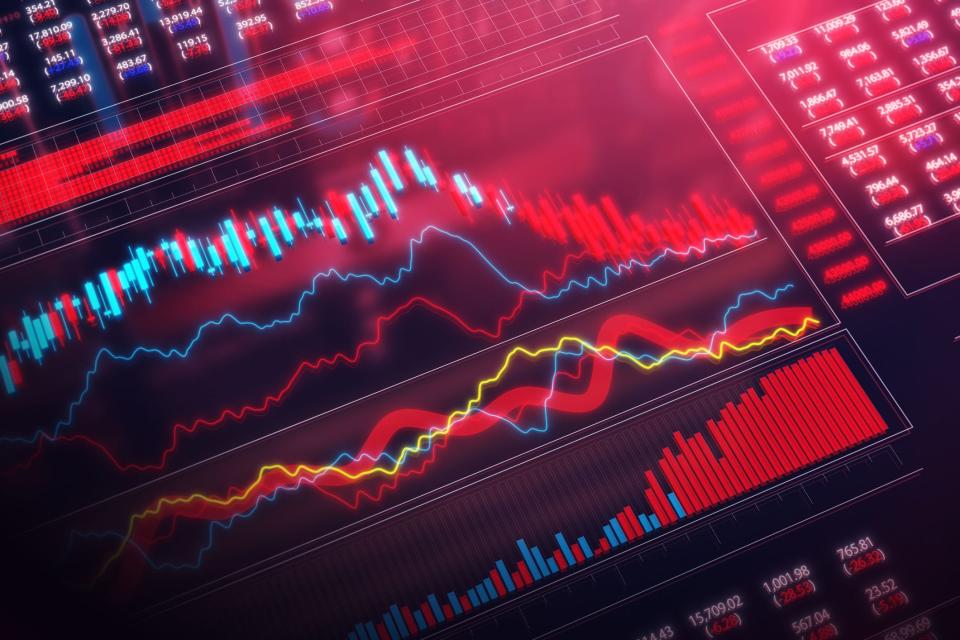The S&P 500 could crater 48% when the stock-market bubble pops and recession finally hits, elite strategist says

The S&P 500 could crash 48% when the bubble in stocks pops and a recession hits, Paul Dietrich said.
The elite strategist pointed to a massively overvalued market and cracks in the economy.
Dietrich predicted inflation and interest rates would remain elevated, and taxes would rise.
The S&P 500 could be cut in half when the stock-market bubble pops and the US economy sinks into recession, Paul Dietrich says.
"I believe the upcoming recession will result in a deeper stock market decline than we experienced in 2000 and 2008," B. Riley Wealth Management's chief investment strategist said in his latest monthly commentary.
Dietrich detailed warning signs that indicate stocks are hugely overvalued and close to suffering a correction. For example, he pointed to the S&P 500's price-to-earnings ratio and inflation-adjusted Shiller PE ratio, which, excluding past recessions, are both at multi-decade highs, and the benchmark index's historically low dividend yield of 1.35%.
He also noted the market's recent gains have been driven by investors' excitement about a handful of stocks like Microsoft and Nvidia, and their hopes that the Federal Reserve will cut interest rates later this year — not fundamentals like rising corporate earnings.
Indeed, Dietrich compared the immense hype around AI with the internet mania during the dot-com bubble. He also flagged the Buffett Indicator, which has surged to 188% this year — close to the 200% mark where buying stocks would be "playing with fire" in Warren Buffett's view.
Moreover, the strategist noted the price of gold has jumped about 20% to record highs over the past year. He attributed that to institutional investors buying the haven asset as they expect a "major correction or stock market crash due to our wildly overvalued stock market and a slowing underling economy."
On the economic front, Dietrich argued that decades of excessive fiscal spending and artificially low interest rates have staved off a downturn.
He predicted rates would remain elevated for years to combat stubborn inflation, and the government would be forced to raise taxes to address its ballooning budget deficit, pulling down the prices of assets like stocks and houses and causing an economic slump.
"No one seems to notice that the economy is cooling and there are risks to the economy everywhere," he said. "I still believe there is a strong possibility the economy will go into a mild recession this year."
Dietrich noted the S&P 500 typically tumbles by about 36% during a recession, and the index would need to drop 12% from its current level of around 5,450 points to return to its 200-day moving average. Thus, he warned the index could plunge up to 48% to roughly 2,800 points — its lowest level since the Covid crash in the spring of 2020.
The Wall Street veteran is one of several top forecasters predicting pain for stocks and a recession ahead. But it's worth noting that Dietrich has been sounding the alarm for months, and neither the market nor the economy has run into serious trouble.
Read the original article on Business Insider

 Yahoo Finance
Yahoo Finance 